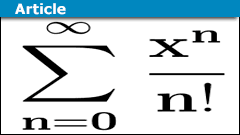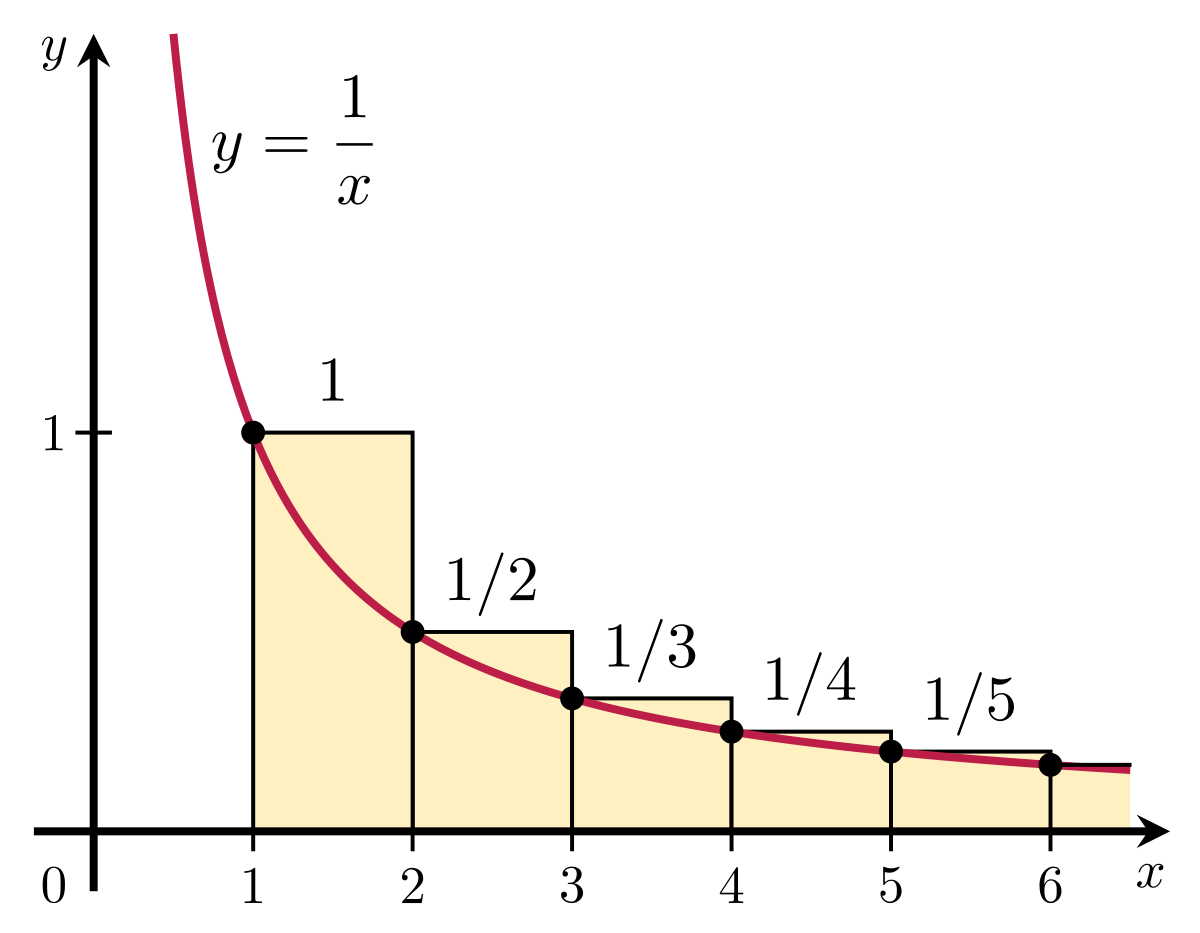The oldest proof I've read about is from the 14th century! It is far easier than any criteria. We are asked about the value of
1+21+31+41+51+…and we can group the terms:
1+21+(31+41)+(51+61+71+81)+(91+101+111+121+131+141+151+161)+…Now every sum in the parentheses is greater than
1/2 and thus they sum up to infinity.




